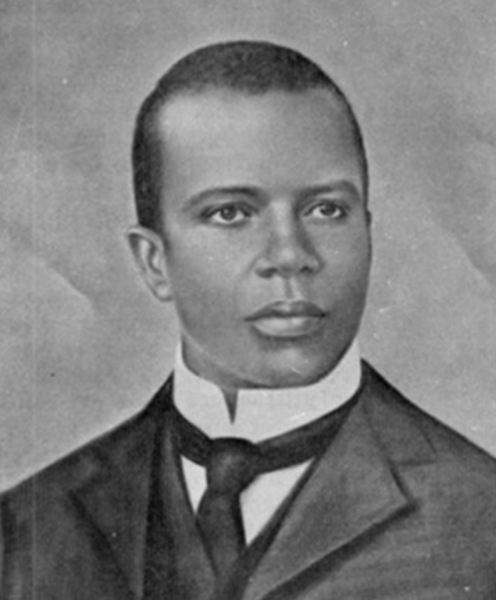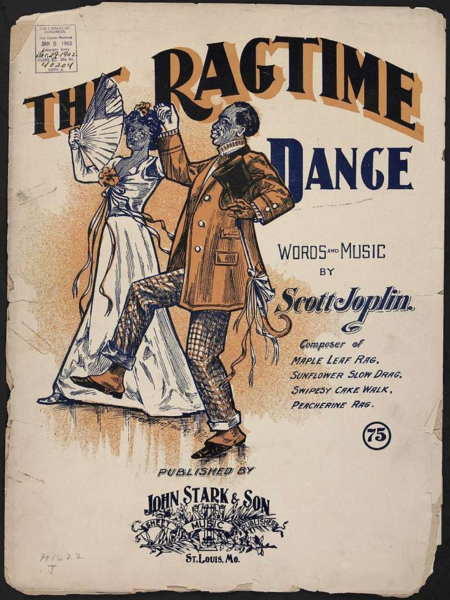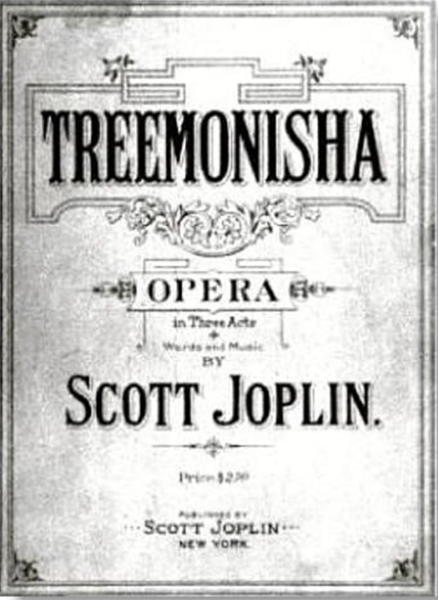Scott Joplin and Ragtime
Today, Joplin and Ragtime. The University of Houston presents this series about the machines that make our civilization run, and the people whose ingenuity created them.
______________________

Scott Joplin is a name many still know today. We think of him as “The King of Ragtime,” and as the composer of the “Maple Leaf Rag” and “The Entertainer.” But along with his name, what endures is how Joplin’s ingenuity ushered in a new and quintessentially American style of music: Ragtime.
(The Entertainer)
Joplin was born to a freed slave father near Texarkana, Texas in 1868, just 3 years after the end of the American Civil War. Joplin’s family had little money, but his musical talents were noticed by a Jewish immigrant and music professor from Germany named Julius Weiss. Weiss believed in Joplin’s talent, gave him years of free piano lessons, and a chance.
Joplin set out across the south and Midwest, mainly playing in churches and brothels, which were among the few opportunities for African Americans. While affluent young musicians studied European forms at elite schools, Joplin traversed the heartland of America, forging a “ragged” style of syncopation that now forms the very backbone of American Ragtime and later Jazz. Joplin and his new style waited on the sidelines until the Chicago World’s Fair of 1893 changed their fate forever.

That year, some 27 million visitors saw the original Farris Wheel and watched Harry Houdini escape. Inside the fair, the music of Antonin Dvorak and John Philip Sousa were on official display. Outside the fair, African American musicians like Joplin played their syncopated rags at cafes and saloons. Visitors took these melodies back with them to all corners of America, and by 1897, Ragtime had become a national craze.

After the fair, Joplin moved to Missouri, where he played and taught before hitting it big the publication of his “Maple Leaf Rag”. This brought him fame, a steady income, and a chance to publish numerous other works. Joplin even composed several large pieces with Ragtime elements in his lifetime, including a ballet suite and two operas, A Guest of Honor and Treemonisha.

His passing in 1917 marked the end of the Ragtime era, but not the end of Joplin’s influence. What endures is his legacy of perseverance, finding a way to prosper despite the many doors that were closed to him. In the face of adversity, Joplin simply made his own style, which gave rise to Jazz and still influences R&B, hip-hop, and rock today.
Joplin was posthumously awarded the Pulitzer Prize in 1976 for exceptional contributions to American music, and he continues to be celebrated every year at The Scott Joplin International Ragtime Festival in Sedalia, Missouri.
I’m Stephen Cook at the University of Houston, where we’re interested in the way inventive minds work.
(The Entertainer)
Bibliography
Berlin, E. A. (2016). King of ragtime: Scott Joplin and his era.
Oxford University Press.
[Ferris wheel at the Chicago World’s fair]. Library of Congress. (1893, January 1). https://www.loc.gov/pictures/resource/cph.3a50979/?loclr=blogpic
Joplin Ragtime Music Cover. (n.d.-a). https://loc.getarchive.net/topics/ragtime
“Home.” Scott Joplin Interna, www.scottjoplin.org/. Accessed 1 July 2025.
Reed, A. W. (1973). The life and works of Scott Joplin. The
University of North Carolina at Chapel Hill.
Rodda, K. (2017, February 23). Photograph of Scott Joplin taken in approximately 1900. public domain.: NLS music notes. The Library of Congress. https://blogs.loc.gov/nls-music-notes/2017/02/celebrating-black-composers/scott_joplin/
Scott Joplin, www.kennedy-center.org/education/resources-for-educators/classroom-reso…. Accessed 1 July 2025.
Treemonisha Cover Scan. (n.d.-b). https://itoldya420.getarchive.net/
This episode first aired July 15, 2025.